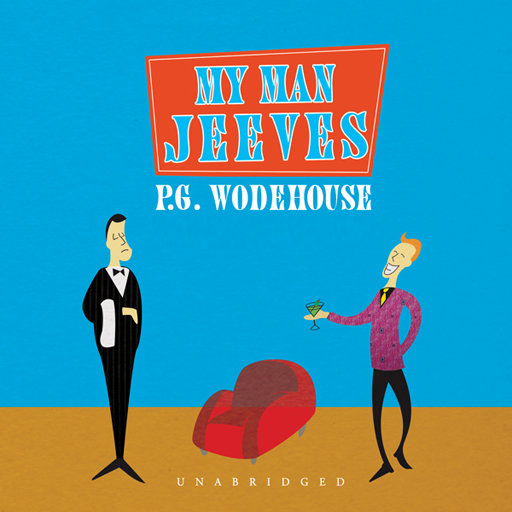“I suppose it seems rummy to you,” I said, “but the fact is New York often bucks chappies up and makes them show a flash of speed that you wouldn’t have imagined them capable of. It sort of develops them. Something in the air, don’t you know. I imagine that Bicky in the past, when you knew him, may have been something of a chump, but it’s quite different now. Devilish efficient sort of chappie, and looked on in commercial circles as quite the nib!”
“I am amazed! What is the nature of my nephew’s business, Mr. Wooster?”
“Oh, just business, don’t you know. The same sort of thing Carnegie and Rockefeller and all these coves do, you know.” I slid for the door. “Awfully sorry to leave you, but I’ve got to meet some of the lads elsewhere.”
Coming out of the lift I met Bicky bustling in from the street.
“Halloa, Bertie! I missed him. Has he turned up?”
“He’s upstairs now, having some tea.”
“What does he think of it all?”
“He’s absolutely rattled.”
“Ripping! I’ll be toddling up, then. Toodle-oo, Bertie, old man. See you later.”
“Pip-pip, Bicky, dear boy.”
He trotted off, full of merriment and good cheer, and I went off to the club to sit in the window and watch the traffic coming up one way and going down the other.
It was latish in the evening when I looked in at the flat to dress for dinner.
“Where’s everybody, Jeeves?” I said, finding no little feet pattering about the place. “Gone out?”
“His grace desired to see some of the sights of the city, sir. Mr. Bickersteth is acting as his escort. I fancy their immediate objective was Grant’s Tomb.”
“I suppose Mr. Bickersteth is a bit braced at the way things are going—what?”
“Sir?”
“I say, I take it that Mr. Bickersteth is tolerably full of beans.”
“Not altogether, sir.”
“What’s his trouble now?”
“The scheme which I took the liberty of suggesting to Mr. Bickersteth and yourself has, unfortunately, not answered entirely satisfactorily, sir.”
“Surely the duke believes that Mr. Bickersteth is doing well in business, and all that sort of thing?”
“Exactly, sir. With the result that he has decided to cancel Mr. Bickersteth’s monthly allowance, on the ground that, as Mr. Bickersteth is doing so well on his own account, he no longer requires pecuniary assistance.”
“Great Scot, Jeeves! This is awful.”
“Somewhat disturbing, sir.”
“I never expected anything like this!”
“I confess I scarcely anticipated the contingency myself, sir.”
“I suppose it bowled the poor blighter over absolutely?”
“Mr. Bickersteth appeared somewhat taken aback, sir.”
My heart bled for Bicky.
“We must do something, Jeeves.”
“Yes, sir.”
“Can you think of anything?”
“Not at the moment, sir.”
“There must be something we can do.”
“It was a maxim of one of my former employers, sir—as I believe I mentioned to you once before—the present Lord Bridgnorth, that there is always a way. I remember his lordship using the expression on the occasion—he was then a business gentleman and had not yet received his title—when a patent hair-restorer which he chanced to be promoting failed to attract the public. He put it on the market under another name as a depilatory, and amassed a substantial fortune. I have generally found his lordship’s aphorism based on sound foundations. No doubt we shall be able to discover some solution of Mr. Bickersteth’s difficulty, sir.”

